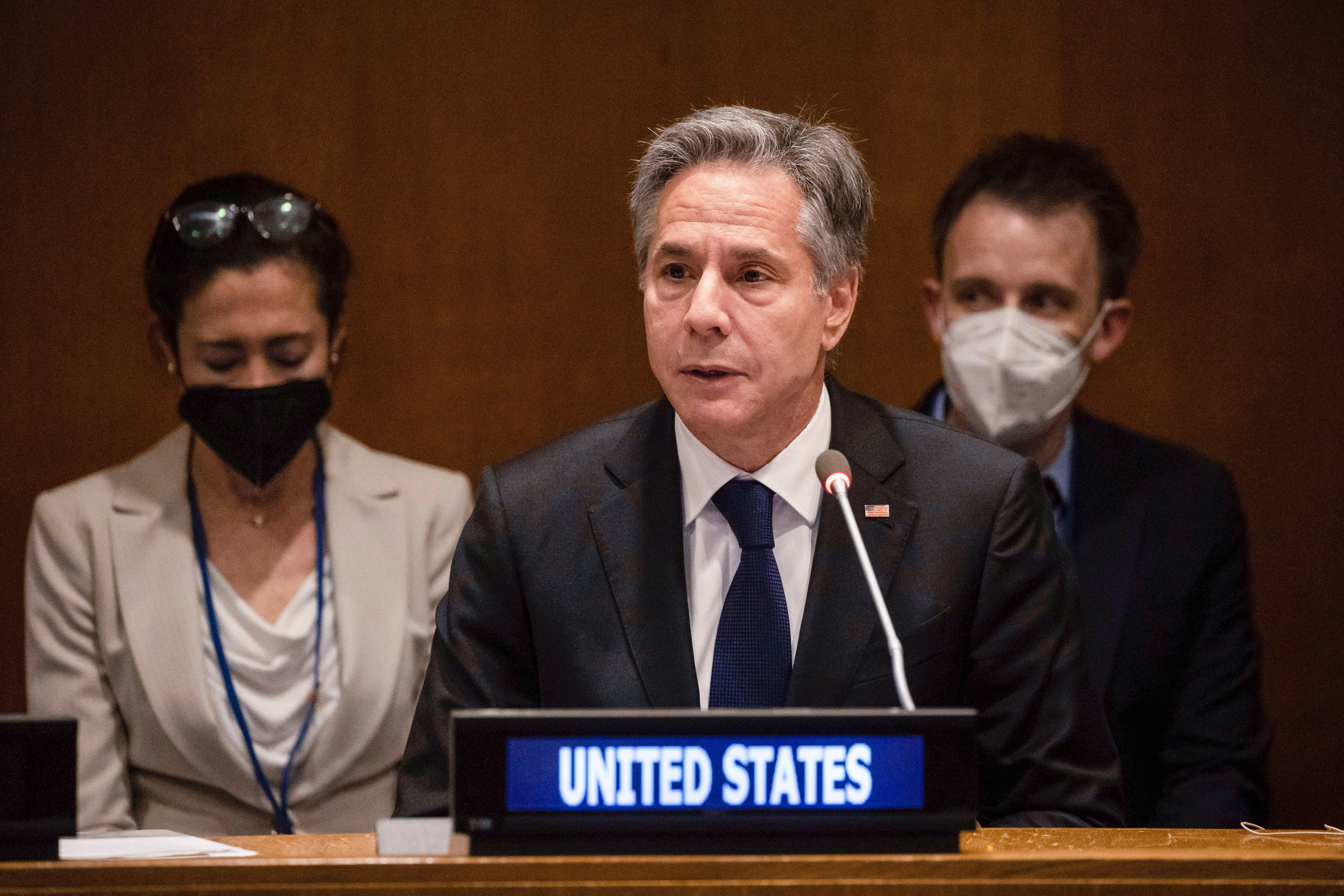US sanctions UAE, Hong Kong firms that ship Iranian oil
The U.S. has sanctioned a United Arab Emirates-based firm and several Asian companies for facilitating the illicit sale of millions of dollars’ worth of Iranian oil for shipment to East Asia

Your support helps us to tell the story
From reproductive rights to climate change to Big Tech, The Independent is on the ground when the story is developing. Whether it's investigating the financials of Elon Musk's pro-Trump PAC or producing our latest documentary, 'The A Word', which shines a light on the American women fighting for reproductive rights, we know how important it is to parse out the facts from the messaging.
At such a critical moment in US history, we need reporters on the ground. Your donation allows us to keep sending journalists to speak to both sides of the story.
The Independent is trusted by Americans across the entire political spectrum. And unlike many other quality news outlets, we choose not to lock Americans out of our reporting and analysis with paywalls. We believe quality journalism should be available to everyone, paid for by those who can afford it.
Your support makes all the difference.The U.S. has sanctioned a United Arab Emirates-based firm and several Asian companies for facilitating the illicit sale of millions of dollars’ worth of Iranian oil for shipment to East Asia.
The Treasury Department's Office of Foreign Assets Control on Monday imposed the sanctions on UAE-based Blue Cactus Heavy Equipment and Machinery Spare Parts Trading for providing support to the Iranian petroleum trade.
Hong Kong-based Farwell Canyon HK Limited, Shekufei International Trading Co., Limited, and PZNFR Trading Limited were also hit with Treasury sanctions.
The latest round of sanctions targeting Iranian oil sales come as the U.S. attempts to reenter the Iran nuclear agreement that President Donald Trump exited in May 2018.
President Joe Biden’s administration has been working to renew the agreement, which placed curbs on Iran’s nuclear program in exchange for billions of dollars in sanctions relief, which Iran insists it has never received.
“The United States continues to pursue the path of diplomacy to achieve a mutual return to full implementation of the Joint Comprehensive Plan of Action,” also known as the Iran nuclear deal, Brian Nelson, the Treasury Department's undersecretary for terrorism and financial intelligence, said in a statement.
“Until such time as Iran is ready to return to full implementation of its commitments, we will continue to enforce sanctions on the illicit sale of Iranian petroleum and petrochemicals."
The sanctions also come ahead of OPEC+ meetings that begin this week, where the U.S. and European nations have pressed cartel members, namely Saudi Arabia and the UAE, to pump more oil in hopes of reducing gas prices for American consumers. In late June, OPEC and allied producing nations decided not to boost production of crude in a meaningful way for consumers.
The Treasury Department did not respond to a request for comment on whether the latest financial penalties could impact U.S. hopes to get increased oil production from the UAE.
The administration uses an August 2018 executive order signed by Trump as its authority to impose the sanctions.
Also on Monday, the State Department imposed penalties on two firms, Pioneer Ship management PTE LTD from Singapore and Golden Warrior Shipping Co. Ltd. out of Hong Kong, that it says have engaged in the acquisition, sale or transport of Iranian petroleum products.
Secretary of State Antony Blinken said in a statement that “until Iran is ready to return to full implementation” of the Iran nuclear agreement, “we will continue to use our sanctions authorities to target exports of petroleum, petroleum products, and petrochemical products from Iran.”
In July, several Iranian companies and UAE-based Iranian nationals were hit with sanctions, including Iran-based Jam Petrochemical Co., which has exported hundreds of millions of dollars worth of products to countries throughout Asia, including China.
Iran is nursing a battered economy, with its currency hitting its lowest value ever after the U.S. withdrew from the nuclear deal.